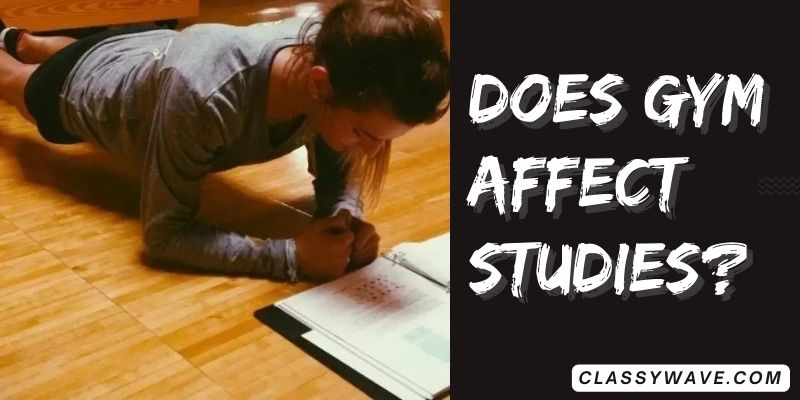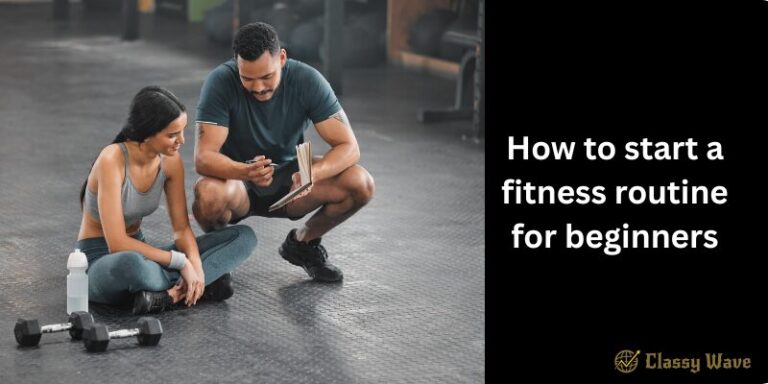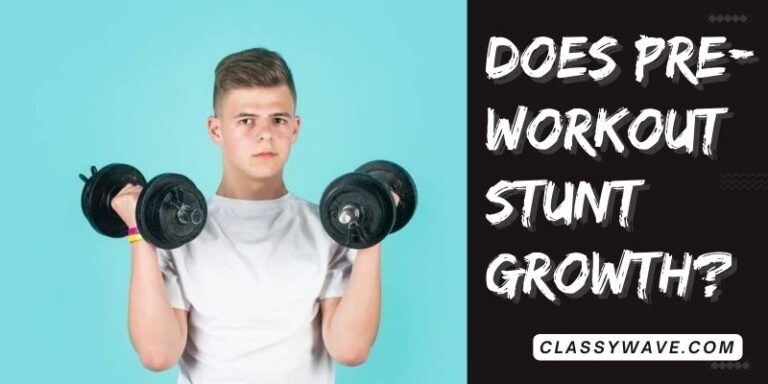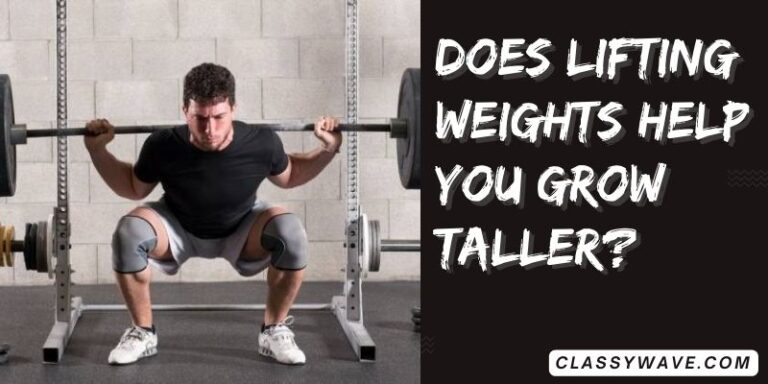Does gym affect studies? Revolutionize Your Studies
In the realm of academia, the intersection of physical fitness and intellectual pursuits is a dynamic field worth exploring. From the nuanced benefits of micro-workouts to the neurochemical rewards of exercise, this compilation delves into innovative approaches, strategies, and insights that illuminate the symbiotic relationship between maintaining a healthy, active lifestyle and achieving academic excellence.
Exercise and Cognition
Regular exercise has a profound impact on cognitive function, enhancing memory, attention, and learning. Scientific studies reveal a positive correlation between physical activity and mental acuity, shedding light on the cognitive benefits of staying active. Understanding this link is crucial for individuals seeking to optimize their cognitive performance through a well-rounded fitness routine.
Balancing Gym with Academics
Striking a balance between gym commitments and academic demands is essential for student success. Effective time management, prioritization, and goal-setting are key strategies for navigating the dual responsibilities of maintaining physical fitness and excelling in studies. This balance fosters holistic well-being, ensuring that both academic and fitness goals are pursued without compromising one another.
Physical Activity’s Mental Health Benefits
Engaging in regular physical activity not only contributes to physical well-being but also significantly impacts mental health. Exercise is linked to the release of endorphins, reducing stress, anxiety, and depression. Understanding the mental health benefits of physical activity emphasizes its role as a powerful tool for maintaining emotional well-being and resilience in the face of academic challenges.
Integrating Gym into a Productive Study Routine
Effectively integrating gym sessions into a study routine is crucial for optimizing overall productivity. Establishing a well-structured schedule that accommodates both study and workout sessions ensures a harmonious balance between mental and physical activities. This integration promotes sustained energy levels, enhanced focus, and overall well-being, contributing to academic success.
Fitness and Academic Performance
The connection between physical fitness and academic performance is supported by scientific evidence highlighting the positive impact of exercise on cognitive abilities. Improved concentration, enhanced memory, and increased alertness are among the cognitive benefits associated with regular physical activity. Recognizing this connection underscores the importance of maintaining a healthy and active lifestyle for academic success.
Avoiding Overexertion
While regular exercise is beneficial, overexertion can have adverse effects on focus and concentration. Understanding the limits of physical activity and ensuring a balanced approach is essential to prevent burnout. Acknowledging the impact of overexertion on mental faculties emphasizes the importance of moderation and self-care in maintaining both physical and cognitive well-being.
Maintaining Study-Gym Balance
Practical tips for maintaining a healthy balance between academic commitments and gym activities involve effective time management, setting realistic goals, and prioritizing tasks. Establishing a routine that accommodates study sessions and workout routines ensures a sustainable and balanced approach. These practical strategies empower individuals to navigate the demands of both academics and fitness, fostering a holistic and fulfilling lifestyle.
Science of Exercise and Academic Success
The scientific exploration of the relationship between exercise and academic success reveals compelling evidence supporting the positive impact of physical activity on cognitive function. Research indicates that regular exercise enhances neuroplasticity, neurogenesis, and overall brain health, contributing to improved academic performance. Understanding the scientific basis of this connection underscores the importance of incorporating physical activity into a comprehensive approach to education.
Student Insights
Insights from students who successfully manage both academic studies and gym commitments provide valuable perspectives. Balancing testimonials and practical experiences, these insights offer tips, challenges, and success stories. Understanding how fellow students navigate the dual responsibilities of academia and fitness provides inspiration and practical guidance for those seeking a harmonious balance in their own lives.
Optimizing Cognitive Performance through Fitness
Achieving optimal cognitive performance through fitness involves a strategic approach to physical activity. Tailoring workouts to enhance specific cognitive functions, incorporating regular exercise into daily routines, and prioritizing overall well-being contribute to cognitive optimization. Recognizing the direct impact of fitness on cognitive abilities empowers individuals to proactively integrate physical activity as a fundamental component of their strategy for achieving peak mental performance.
Study Boost
Incorporating micro-workouts into study sessions provides a rapid energy boost and mental refreshment. These brief, targeted exercises, such as quick stretches or desk exercises, combat sedentary study habits, enhancing blood flow and oxygenation to the brain. By seamlessly integrating physical activity into study breaks, students can elevate alertness, counteract fatigue, and improve overall concentration. This approach not only promotes physical well-being but also maximizes productivity, offering a practical solution for maintaining focus during prolonged study sessions.
Dopamine & Exercise
The relationship between exercise and dopamine release unveils the neurochemical rewards that contribute to enhanced mood and motivation. Dopamine, a neurotransmitter associated with pleasure and reward, surges during physical activity, creating a positive feedback loop. This phenomenon not only fosters a sense of well-being but also boosts motivation, potentially influencing study habits. Understanding the neurochemical benefits of exercise sheds light on how physical activity can be a powerful tool for maintaining a positive mindset and sustaining motivation throughout the academic journey.
Interval Training
Interval training emerges as an efficient fitness strategy for busy students seeking maximum benefits in minimal time. This approach involves alternating between short bursts of intense exercise and brief periods of rest or lower-intensity activity. For students, this means a time-efficient workout that enhances cardiovascular health, boosts metabolism and improves endurance. Incorporating interval training into a study routine allows individuals to reap the rewards of exercise without compromising academic commitments, making it an appealing option for maintaining overall well-being within a tight schedule.
Game On
Gamifying exercise introduces playful motivational strategies to boost engagement and adherence to fitness routines. By turning workouts into enjoyable games or challenges, individuals can inject an element of fun into their physical activities. This not only makes exercise more appealing but also helps create a positive association with fitness. Applying gaming principles to workouts can transform the perception of exercise from a chore to an exciting and rewarding endeavour, motivating individuals, including students, to stay committed to their fitness goals amidst demanding academic schedules.
Post-Workout Productivity
Post-workout productivity explores the concept of the exercise afterglow, where enhanced cognitive function and mood persist after physical activity. This phenomenon, characterized by improved focus and mental clarity, offers a unique window of heightened productivity that can be strategically leveraged for academic tasks. Understanding and harnessing the post-workout afterglow provides students with a valuable tool to optimize study sessions, potentially improving learning outcomes. By aligning challenging academic tasks with this period of heightened cognitive function, individuals can capitalize on the cognitive benefits of exercise for academic success.
Conclusion
In conclusion, the diverse array of strategies and insights presented underscores the profound impact of integrating physical fitness into the academic journey. From quick, invigorating micro-workouts to the neurochemical rewards of exercise, these approaches offer holistic solutions. As students navigate the demands of academia, recognizing and embracing the synergies between physical well-being and cognitive function becomes paramount—a harmonious blend that fosters sustained motivation, heightened productivity, and a balanced approach to achieving both fitness and academic goals.
FAQs
Question: How can students find time for micro-workouts amidst tight study schedules?
Answer: Schedule short breaks; integrate desk stretches. Prioritize well-being to enhance focus and productivity during study sessions.
Question: What’s the science behind the afterglow effect post-workout, and how can it benefit academics?
Answer: Post-exercise, heightened cognitive function persists, aiding focus. Strategically align challenging tasks with this period for optimal outcomes.
Question: Can interval training truly offer efficient fitness benefits for busy students?
Answer: Yes, alternating intense exercise with rest improves cardiovascular health, metabolism, and endurance—an efficient, time-saving workout strategy.
Question: How can the gamification of exercise motivate students to maintain consistent fitness routines?
Answer: Turning workouts into enjoyable challenges fosters a positive association with exercise, enhancing motivation and adherence.
Question: Are there specific workouts suitable for students with limited space and resources?
Answer: Yes, incorporate desk exercises, yoga, or bodyweight workouts. Minimal space can still accommodate effective, beneficial exercises.







